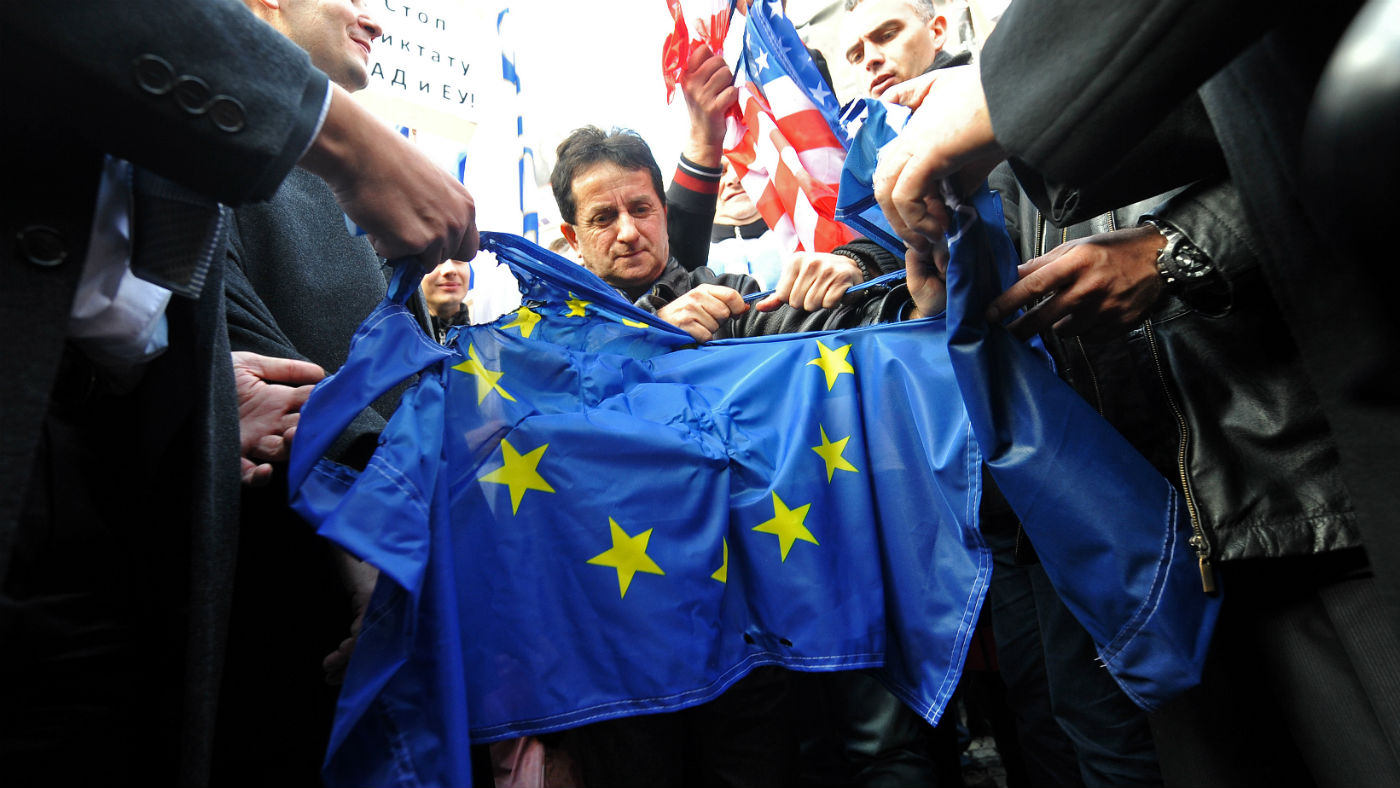Battle lines drawn ahead European Parliamentary elections
EU’s chief Brexit negotiator warns European project faces destruction at the hands of a populist ‘Nigel Farage in every country’

A free daily email with the biggest news stories of the day – and the best features from TheWeek.com
You are now subscribed
Your newsletter sign-up was successful
The EU’s chief Brexit negotiator has fired the starting gun to next year’s European Parliament elections by warning the entire European project faces destruction at the hands of populist forces sweeping the continent.
Addressing a congress of the centre-right European People’s Party, which met in Helsinki to pick their candidate to succeed Jean-Claude Juncker as the next president of the European Commission, Michel Barnier said next May’s elections would be a battle between nationalist and pro-EU parties for the soul of the bloc.
“This election will be tougher than ever before. We will have to fight against those who want to demolish Europe. With their fear. Their populist deceit. And their attacks against the European Project.”
The Week
Escape your echo chamber. Get the facts behind the news, plus analysis from multiple perspectives.

Sign up for The Week's Free Newsletters
From our morning news briefing to a weekly Good News Newsletter, get the best of The Week delivered directly to your inbox.
From our morning news briefing to a weekly Good News Newsletter, get the best of The Week delivered directly to your inbox.
“There is now a Farage in every country,” he added, a swipe at the former Ukip leader who helped bring about the Brexit referendum.
According to The Daily Telegraph, Farage told the EU’s chief negotiator the European Union would collapse after the UK leaves the bloc, something Barnier said “we cannot allow”.
In what appeared to be a coordinated response by senior EU officials to the growing threat posed by populists in Europe, his comments were swiftly followed by an attack on Hungary’s nationalist leader Viktor Orban by European Council President Donald Tusk.
The former prime minister of Poland, who’s own country has been censured by the EU for ‘rule of law’ violations, accused Orban of tolerating xenophobia, nationalism and antisemitism while undermining liberal democracy.
A free daily email with the biggest news stories of the day – and the best features from TheWeek.com
“I want to say it very bluntly: no one has the right, at least in our political family, to attack liberal democracy and its foundations” he said.
Orban’s Fidesz party currently sits in the same centre-right group as Tusk and most mainstream European conservatives, “but there is increasing pressure to expel the Hungarian party following years of attacks on the rule of law”, says The Independent.
The news site reports that Orban, who was attending the conference and sitting to one side of Tusk during the speech, “looked glum throughout most of the president’s address”.
With Hungary, Poland and Italy now controlled by overtly anti-EU populist governments and support for Alternative for Germany, Marine Le Pen’s National Rally (formerly the Nation Front) and Geert Wilders’ Dutch Freedom Party growing, there is mounting concern Eurosceptic parties are poised for significant growth in their representation at the European Parliament.
A Reuters survey of national opinion polls conducted in the summer forecast Eurosceptic parties to end up with around 60% more MEPs after next May’s elections, winning 122 of the 705 seats.
Adding to the EU’s woes is reports Donald Trump’s former chief strategist, Steven Bannon, plans to develop a new “supergroup” within the European parliament.
He has expressed the hope that it would attract up to a third of MPs after the elections next May and hold real sway over future direction of the bloc.
-
 Switzerland could vote to cap its population
Switzerland could vote to cap its populationUnder the Radar Swiss People’s Party proposes referendum on radical anti-immigration measure to limit residents to 10 million
-
 Political cartoons for February 15
Political cartoons for February 15Cartoons Sunday's political cartoons include political ventriloquism, Europe in the middle, and more
-
 The broken water companies failing England and Wales
The broken water companies failing England and WalesExplainer With rising bills, deteriorating river health and a lack of investment, regulators face an uphill battle to stabilise the industry
-
 Epstein files topple law CEO, roil UK government
Epstein files topple law CEO, roil UK governmentSpeed Read Peter Mandelson, Britain’s former ambassador to the US, is caught up in the scandal
-
 Iran and US prepare to meet after skirmishes
Iran and US prepare to meet after skirmishesSpeed Read The incident comes amid heightened tensions in the Middle East
-
 Israel retrieves final hostage’s body from Gaza
Israel retrieves final hostage’s body from GazaSpeed Read The 24-year-old police officer was killed during the initial Hamas attack
-
 China’s Xi targets top general in growing purge
China’s Xi targets top general in growing purgeSpeed Read Zhang Youxia is being investigated over ‘grave violations’ of the law
-
 Panama and Canada are negotiating over a crucial copper mine
Panama and Canada are negotiating over a crucial copper mineIn the Spotlight Panama is set to make a final decision on the mine this summer
-
 Why Greenland’s natural resources are nearly impossible to mine
Why Greenland’s natural resources are nearly impossible to mineThe Explainer The country’s natural landscape makes the task extremely difficult
-
 Iran cuts internet as protests escalate
Iran cuts internet as protests escalateSpeed Reada Government buildings across the country have been set on fire
-
 US nabs ‘shadow’ tanker claimed by Russia
US nabs ‘shadow’ tanker claimed by RussiaSpeed Read The ship was one of two vessels seized by the US military